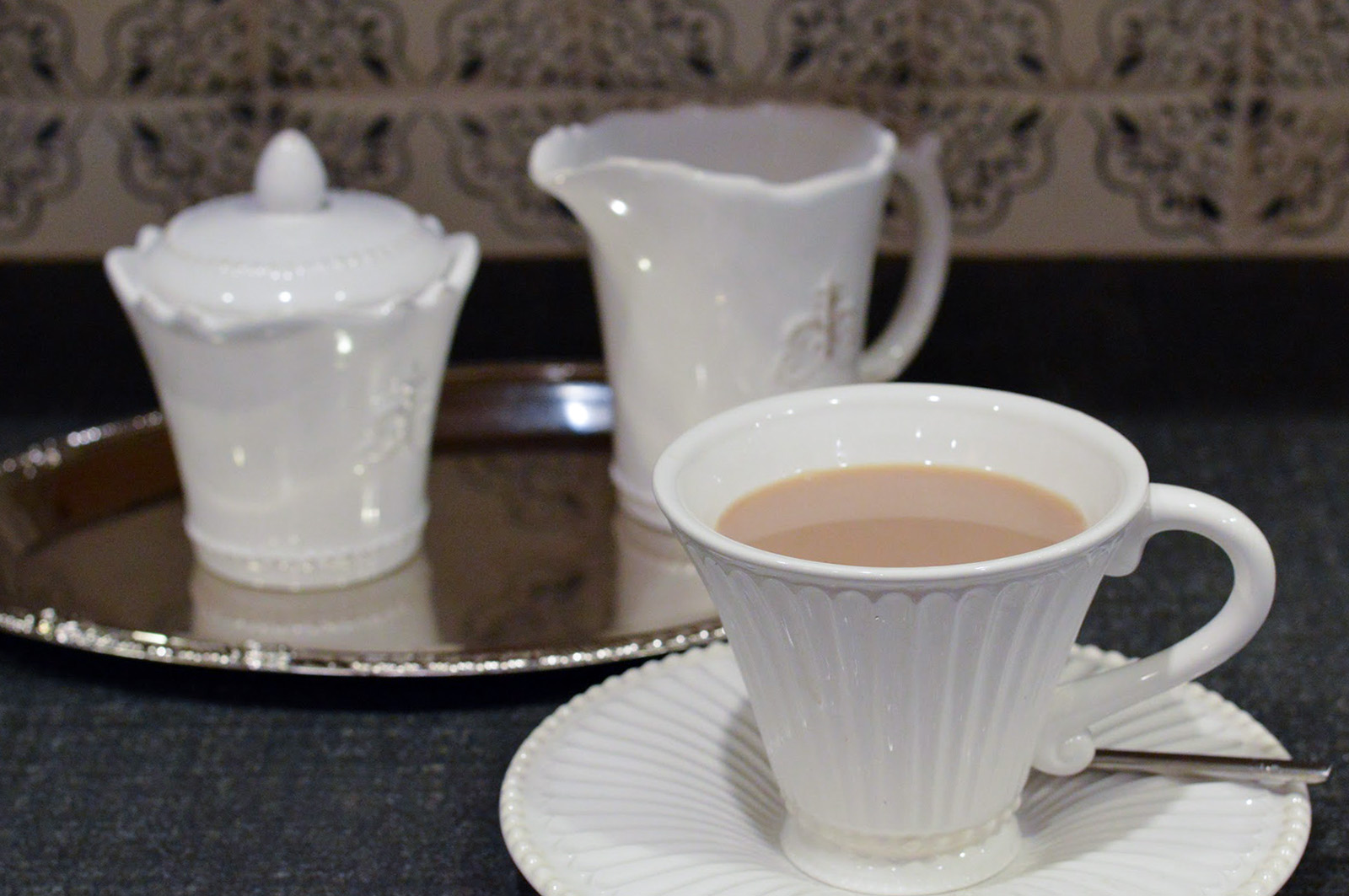Brown and Bothered: Commercialization of chai ignores history of oppression, distorts original

Chai is a common element of Pakistani and other South Asian cultures and refers to black tea brewed with milk, water and sugar, sometimes with added spices. (Courtesy of Yusuf Rashid)
By Sidra Rashid
May 2, 2017 11:41 p.m.
Students should avoid cultural appropriation – stealing what is considered the beautiful aspects of another culture without respect for the tradition from which it originates. It ignores the racism and xenophobia the creators of the items face. In Brown and Bothered, columnist Sidra Rashid discusses her experiences with appropriation of her Desi culture.
When one hears of chai, they likely lump it into a category of “basic” Starbucks drinks – just as there are pumpkin spice lattes and matcha tea lattes, there are chai tea lattes.
But when I hear the word “chai,” I think of Saturday morning breakfast with my family – chocolate chip pancakes, my mom trying to coerce my brothers and me into eating scrambled eggs and my cat jumping on the dining table in an attempt to steal from our plates.
I think of my grandparents’ house, where they have boiling water on the stove at least three times a day as they attempt to stuff us with food at breakfast, with snacks in the middle of the day for “chai time” and after dinner, all of which lead to another mug in our hands.
The appropriation of food is an interesting conundrum. It’s difficult to determine what is appropriation of food in many cases, like Taco Bell and Panda Express. Do these chains represent a blending or a thievery of cultures?
Serving naan and samosas in the West seems more like appreciating my culture than it does stealing, because it was first introduced and shared by Desi people, and stays true to the original ingredients and taste.
However, when the ingredients of an item from my culture are completely changed, but remain labeled as the original, it creates a lack of understanding about the origins in Western society. Chai has fallen victim to this type of appropriation, which I see often.
I spend many breaks between classes lining up for lattes from Bruin Café. Without fail, somebody ahead nearly always orders a chai tea latte, and I try not to laugh or roll my eyes.
In my native tongue, Urdu, as well as a couple other South Asian languages, chai means “tea.” Hence, every time somebody says “chai tea,” the person is really saying “tea tea.”
It’s like somebody saying “toast bread” or “coke soda.” The misuse of the word, while comical, is telltale of the lack of cultural and historical considerations when Western companies introduce such products to their menus. It shows that chai’s appropriation comes from a lack of cultural appreciation. When the West takes things that don’t belong to its culture, we end up with phrases like “tea tea.”
Chai came to India while the country was under British colonialist rule, and the British created tea plantations at which Indian people were forced to work. Tea was far too expensive for most Indians, so their solution was chai – black tea with heavy amounts of milk and sugar for higher quantities and a richer taste.
Likely through British imperialism and appropriation, chai ended up at Starbucks almost two centuries later with its overly sweet and bitingly spicy undertones. The drink’s texture is gritty and topped with classic latte-esque foam.
The taste and texture is not even close to chai I’ve been drinking since I was 4 or 5 years old.
The ingredients of chai are very simple: black tea, water, milk and sugar. At Desi restaurants, the owners might serve masala chai by adding nutmeg and cardamom for extra flavor.
Now I am stuck waiting in line at Starbucks behind unknowing non-Desi people ordering chai tea lattes with unfathomable ingredients like black pepper, vanilla and honey. People have created a new perception of my cultural drink, and many don’t realize the true taste or that it started as a Desi brew.
Unlike naan or samosas served at Pakistani restaurants, chai is warped into something it’s not, and it’s placed in a context where it doesn’t belong. It’s introduced to the masses by mostly Western corporations whose ambition is to make money, not to share cultures.
Starbucks should rename its version of chai to a title that does not alter the identity of my culture. And if Western society wants chai, they should drink it how it is meant to be consumed.
My chai is not sprinkled with cinnamon or topped with a frothy foam. Chai is not meant to be ordered from Starbucks or an indie coffee shop. My chai is not “tea tea.”

